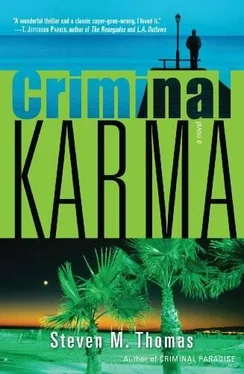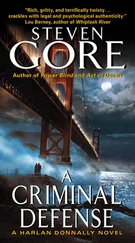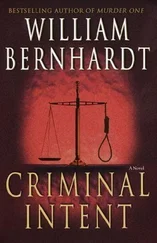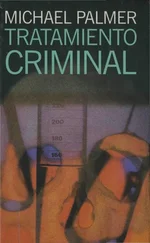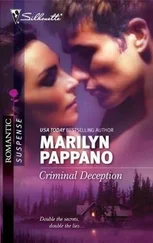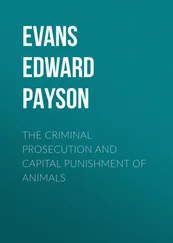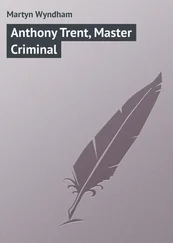The clothes I had worn the previous night were on the floor beside the bed. I stepped into my pants, put my shirt on and buttoned it up, then sat back down on the edge of the bed to put on my shoes.
Namo was hovering over me in a threatening way while Pete stood guard at the bedroom door with his sap in case I tried to make a run for it. He wasn’t a big guy, but he was in good shape. It would be tough to get past him without taking a debilitating blow from the blackjack.
When I stood up again, I patted my pants pockets. “One of you guys got a cigarette?” I asked.
“No, we don’t have a cigarette, asshole,” Pete said.
“You shouldn’t smoke, Robert,” Baba said, disapprovingly. “It is bad for your health.”
“I only do it when I am nervous,” I said, fishing in my front shirt pocket.
“Let’s go,” Namo said, reaching out with his free hand to grasp my shoulder and turn me toward the door.
As he grabbed my shoulder, the gun swung wide. When it was pointing at thin air instead of my navel, I whipped Oz’s razor blade out and slashed his left forearm and then his face with a quick back and forth motion of my hand. He screamed and dropped the pistol, using his gun hand to try and staunch the blood spurting from the arteries in his arm. I sprinted for the window.
“Stop him!” Pete yelled.
Baba bounded up from the chair to cut me off but jumped back when I slashed at his face.
I dove through the closed window. Its dry-rotted frame gave way like balsa wood and I landed among splinters and broken glass on the shed roof over the back porch, rolled down the roof, and dropped over the edge into the alley.
“After him!” I heard Baba roar, but no one came out the window. Baba was too fat, Namo too bloody, and Pete most likely too chicken.
I ran south half a block to Market, dodged over to the boardwalk and sprinted north, weaving around morning strollers. At Horizon, I circled back to Pacific, peeking around the corner of a brick building. There was no one in front of the flophouse. Namo’s wounds had slowed them down.
I raced across Pacific and along Horizon to Mr. Parker’s. He was situating a Corolla at the back of the lot. I grabbed my keys out of the shack and ran to the Seville, which was parked with its nose toward the gap in the chain.
“Hey, now,” Mr. Parker said, hurrying toward me. He didn’t allow people to get their own keys.
“Sorry,” I yelled as I hopped in. “I’m in a big hurry.”
Things were bad. A slippery handful of lowlifes knew that Reggie and I had committed a series of felonies that could send us to prison for years, and they had at least one piece of potentially damning evidence. It was very possible that I had lost the necklace again, this time irretrievably. To have it and lose it and have it and lose it again was too much. I felt like I was flailing in quicksand. Baba might search the room and find it, along with the gold and bonds, leaving us nothing to show for our time and risk and effort and outlay on tools. Or the cops might move in, blocking a return to the flophouse, putting us on the run. And Mary. I didn’t know what Baba had done to or with her. I couldn’t think about it. To top it all off, there were homicidal gangsters moving in the shadows.
Things were bad. And they were about to get a lot worse.
I parked at Brooks and Seventh Street, one block over from Broadway, took a couple of deep breaths to slow my heart and calm my mind, then got out and took the tire tool from the trunk and jogged along Seventh to the ashram. There was a Magic Marker-scrawled sign on the locked front door that said the Murshid Center was closed for a staff retreat. No reopening date was mentioned.
There was no one on this residential street at ten o’clock on a Tuesday morning. The wooden panel door was old and shrunken in its frame. I stomped it open, leaving a splintered jamb.
I was headed for the stairs, intent on finding Mary, when something in the gift shop caught my eye. The French doors were closed and the lights were out, but when I glanced that way, scanning for enemies, I noticed something behind the counter.
Something orange.
Something still.
It was Ganesha, a young man who had had the highest of human ambitions. He was lying on his back, one arm pinned under his body, the other stretched above his head as if he was reaching for something. The front of his robe was soaked with blood. I would never know how or why or when, but at some point after he came, shocked and new, into the blinding light of a hospital delivery room, he had looked out at the sunshine and trees, or down into the pages of an ancient book, and felt the joy of God sting his soul. Turning away from common desires, or most of them, at least, he had devoted his life to seeking knowledge of the divine, trying for the ultimate goal of welding his being to the infinite.
He was in the infinite now, and I wished him Godspeed.
“May Christ protect you and have mercy on your soul,” I said. “Sri Ramakrishna open the doors of heaven for this man. Yogananda and Muktananda receive his spirit. Saint Michael and all you angels of light surround him. Protect us now and at the hour of our death.”
There are much better funeral prayers than the one I offered-in the Tibetan Book of the Dead and other traditions-but I didn’t know them. I did the best I could for him. His body was still warm, so I knew his spirit was in the early hours of its journey. His eyes were open as the eyes of the dead always are before the living compulsively close them, symbolizing their expanded vision. With the eyes of his Akashic body, he was seeing sights more amazing than any ever seen on earth, and I repeated my prayer fiercely several times, willing my words to pierce the veil between the worlds and find him in the place where his soul was hurtling.
There was no smell of gunpowder in the air. It looked to me like he had been stabbed at the counter and then fallen and bled to death where he lay. There was blood on the stool where he usually sat and a few drops on the countertop and the phone book that lay on the counter. The phone book was open to the page that listed all the different numbers for the city of Venice, including the underlined number of the police department. He had been ready to blow the whistle, but someone had stopped him. Namo with his knife. I would settle that score if I got the chance. I was glad I had cut him with the razor blade.
Leaving the young monk’s body where it lay, I pounded up the stairs, more frightened than before for Mary. I found her locked in one of the client rooms. She was gagged and hog-tied on the floor, half-dressed in what was left of the robe she had worn the night before. When she saw me burst through the door her eyes flashed heartrending relief that mirrored my own emotions.
“What are you doing here?” she asked with a sob in her voice when I loosed the gag.
“I’m here to rescue you, hot stuff,” I said, working on the ropes. Her slender wrists had been rubbed raw as she struggled to escape.
“How did you know I was in trouble?”
“Baba paid me a visit.”
When I helped her up, she put her arms around me and gave me a long, hard hug, then stepped back and looked me in the eye.
“Where is that fat motherfucker?” she said, all her maiden-in-distress emotion swallowed up in anger. “I am going to bash his melon head in.”
“What did he do to you?” Rage seethed up inside me, turning my field of vision red around the edges.
“I’m okay, baby,” she said, reining in her own outrage long enough to stroke my cheek and give me a quick kiss on the lips. “But he’s not going to be when I get my hands on him. Is he here?”
The ferocity flashing in her flame-blue eyes reminded me that the worst fate a captured Native American warrior could face was being turned over to the women of his enemies for squaw torture.
Читать дальше
